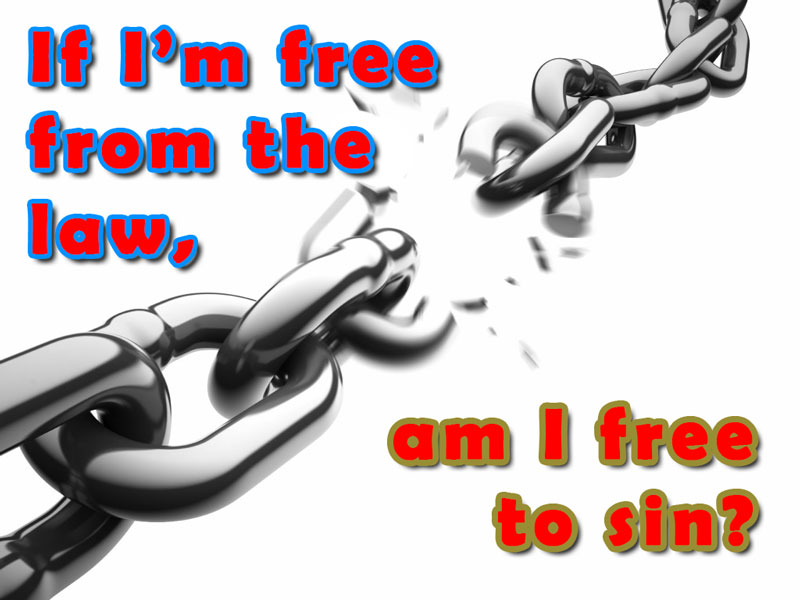Does freedom in Christ mean free to sin?
If you know me or have read much of my posts, you are aware that I am as enthusiastic or more than anyone about our freedom in Christ–not being under the law but liberated by grace (Romans 6:14). That does not mean, however, that we can repudiate everything that the law teaches us. The law, after all, is our pedagogue to lead us to Christ (Galatians 3:24).
What does the law teach us as it leads us to Christ? It teaches us about sin. Paul says, “I would not have known what sin was had it not been for the law” (Romans 7:7). The law can teach us about sin because its standards of righteousness are based on the unchangeable character of God, as Leviticus 19:2 says, “Be holy because I, the LORD your God, am holy.” You will not that again and again in the verses that follow, God concludes nearly each paragraph with the declaration, “I am the LORD.”
It’s a mistake for us to assume that because we are freed from the penalty of the law, from its curse, that we are freed from its standards of righteousness–how to related to our fellow humans with justice and love and how to turn away from what is wicked and evil.
Some things declared abominations in the Old Testament are not mentioned at all in the New Testament. Examples include bestiality and offering children as burnt offerings (see Leviticus 18:23 and Deuteronomy 18:10).
We know the keeping of the Sabbath, the kosher laws, and the entire priestly and sacrificial system did not survive into the New Covenant (see Colossians 2:16-17; Mark 7:19; Hebrews 10:1-18). But the moral standards, the call for justice and kind treatment of the poor, and the emphasis on a right attitude–these remain just as valid in the New Covenant as in the Old.
In fact, the New Covenant carries them even farther, as Jesus taught in the Sermon on the Mount, “You will be perfect, as your heavenly Father is perfect” (Matthew 5:48). The law says to keep the promises you swear on oath to the LORD (Leviticus 19:12; Deuteronomy 23:21-23). Jesus says to be so honest that swearing oaths is unnecessary (Matthew 5:33-37).
Paul refutes the Corinthians’ claim that Christians are set free from moral restraint. In 1 Corinthians 6:12, he quotes their slogan only to refute it: ” ‘Everything is permissible for me,’ but not everything is beneficial. ‘Everything is permissible for me,’ but I will not be mastered by anything.” Paul goes on in that context to remind them, “You are not your own; you were bought at a price. Therefore honor God with your body.”

